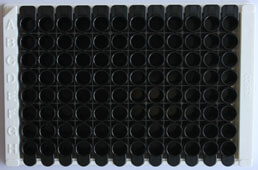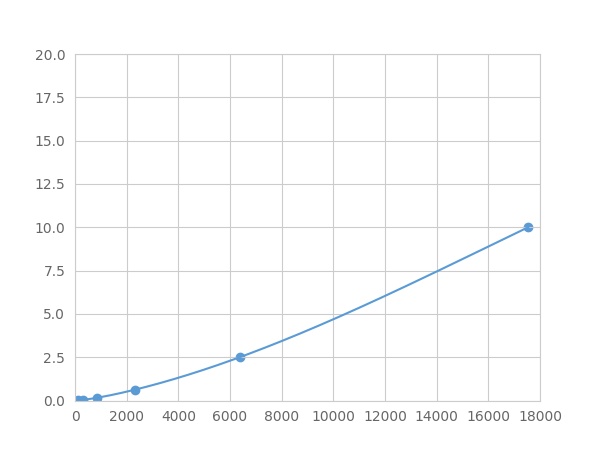Packages (Simulation)

Reagent Preparation

Image (I)
Image (II)
Certificate


Multiplex Assay Kit for Complement Receptor 1, Erythrocyte (CR1) ,etc. by FLIA (Flow Luminescence Immunoassay)
CD35; C3BR; KN; C3b/C4b Receptor,Including Knops Blood Group System; Immune Adherence Receptor
(Note: Up to 8-plex in one testing reaction)
- Product No.LMB123Hu
- Organism SpeciesHomo sapiens (Human) Same name, Different species.
- Sample TypeSerum, plasma, tissue homogenates, cell lysates and other biological fluids.
- Test MethodDouble-antibody Sandwich
- Assay Length3.5h
- Detection Range0.01-10ng/mL
- SensitivityThe minimum detectable dose of this kit is typically less than 0.003 ng/mL.
- DownloadInstruction Manual
- UOM 8Plex 7Plex 6Plex 5Plex 4Plex 3Plex 2Plex1Plex
- FOB
US$ 415
US$ 431
US$ 455
US$ 487
US$ 519
US$ 567
US$ 638
US$ 798
Add to Price Calculator
Result
For more details, please contact local distributors!
Specificity
This assay has high sensitivity and excellent specificity for detection of Complement Receptor 1, Erythrocyte (CR1) ,etc. by FLIA (Flow Luminescence Immunoassay).
No significant cross-reactivity or interference between Complement Receptor 1, Erythrocyte (CR1) ,etc. by FLIA (Flow Luminescence Immunoassay) and analogues was observed.
Recovery
Matrices listed below were spiked with certain level of recombinant Complement Receptor 1, Erythrocyte (CR1) ,etc. by FLIA (Flow Luminescence Immunoassay) and the recovery rates were calculated by comparing the measured value to the expected amount of Complement Receptor 1, Erythrocyte (CR1) ,etc. by FLIA (Flow Luminescence Immunoassay) in samples.
| Matrix | Recovery range (%) | Average(%) |
| serum(n=5) | 83-101 | 97 |
| EDTA plasma(n=5) | 80-89 | 84 |
| heparin plasma(n=5) | 91-98 | 94 |
| sodium citrate plasma(n=5) | 91-104 | 97 |
Precision
Intra-assay Precision (Precision within an assay): 3 samples with low, middle and high level Complement Receptor 1, Erythrocyte (CR1) ,etc. by FLIA (Flow Luminescence Immunoassay) were tested 20 times on one plate, respectively.
Inter-assay Precision (Precision between assays): 3 samples with low, middle and high level Complement Receptor 1, Erythrocyte (CR1) ,etc. by FLIA (Flow Luminescence Immunoassay) were tested on 3 different plates, 8 replicates in each plate.
CV(%) = SD/meanX100
Intra-Assay: CV<10%
Inter-Assay: CV<12%
Linearity
The linearity of the kit was assayed by testing samples spiked with appropriate concentration of Complement Receptor 1, Erythrocyte (CR1) ,etc. by FLIA (Flow Luminescence Immunoassay) and their serial dilutions. The results were demonstrated by the percentage of calculated concentration to the expected.
| Sample | 1:2 | 1:4 | 1:8 | 1:16 |
| serum(n=5) | 93-105% | 81-90% | 88-96% | 91-101% |
| EDTA plasma(n=5) | 98-105% | 93-104% | 81-95% | 93-101% |
| heparin plasma(n=5) | 89-105% | 89-105% | 96-104% | 97-104% |
| sodium citrate plasma(n=5) | 81-90% | 88-95% | 80-104% | 95-102% |
Stability
The stability of kit is determined by the loss rate of activity. The loss rate of this kit is less than 5% within the expiration date under appropriate storage condition.
To minimize extra influence on the performance, operation procedures and lab conditions, especially room temperature, air humidity, incubator temperature should be strictly controlled. It is also strongly suggested that the whole assay is performed by the same operator from the beginning to the end.
Reagents and materials provided
| Reagents | Quantity | Reagents | Quantity |
| 96-well plate | 1 | Plate sealer for 96 wells | 4 |
| Pre-Mixed Standard | 2 | Standard Diluent | 1×20mL |
| Pre-Mixed Magnetic beads (22#:CR1) | 1 | Analysis buffer | 1×20mL |
| Pre-Mixed Detection Reagent A | 1×120μL | Assay Diluent A | 1×12mL |
| Detection Reagent B (PE-SA) | 1×120μL | Assay Diluent B | 1×12mL |
| Sheath Fluid | 1×10mL | Wash Buffer (30 × concentrate) | 1×20mL |
| Instruction manual | 1 |
Assay procedure summary
1. Preparation of standards, reagents and samples before the experiment;
2. Add 100μL standard or sample to each well,
add 10μL magnetic beads, and incubate 90min at 37°C on shaker;
3. Remove liquid on magnetic frame, add 100μL prepared Detection Reagent A. Incubate 60min at 37°C on shaker;
4. Wash plate on magnetic frame for three times;
5. Add 100μL prepared Detection Reagent B, and incubate 30 min at 37°C on shaker;
6. Wash plate on magnetic frame for three times;
7. Add 100μL sheath solution, swirl for 2 minutes, read on the machine.
GIVEAWAYS
INCREMENT SERVICES
| Magazine | Citations |
| Turkish Neurosurgery | Ghrelin Alleviates Spinal Cord Injury in Rats Via Its Anti-inflammatory Effects JTN: 913 |
| 17 | Complement Receptor 1 Gene Variants Are Associated with Erythrocyte Sedimentation Rate PubMed: 21700265 |
| Journal of Neural Transmission | Cerebrospinal fluid levels of complement proteins C3, C4 and CR1 in Alzheimer's disease PubMed: 22488444 |
| Annals of Neurology | High complement levels in astrocyte‐derived exosomes of Alzheimer disease Pubmed:29406582 |
| Scientific Reports | Human complement receptor type 1 (CR1) protein levels and genetic variants in chronic Chagas Disease Pubmed:29323238 |
| Alzheimers & Dementia | Complement protein levels in plasma astrocyte-derived exosomes are abnormal in conversion from mild cognitive impairment to Alzheimer's disease … |
| FASEB JOURNAL | Traumatic brain injury increases plasma astrocyte‐derived exosome levels of neurotoxic complement proteins Pubmed: 31916313 |
| Frontiers in Immunology | Hepatitis B Virus Infection Among Leprosy Patients: A Case for Polymorphisms Compromising Activation of the Lectin Pathway and Complement Receptors 33643280 |
| Catalog No. | Related products for research use of Homo sapiens (Human) Organism species | Applications (RESEARCH USE ONLY!) |
| RPB123Hu01 | Recombinant Complement Receptor 1, Erythrocyte (CR1) | Positive Control; Immunogen; SDS-PAGE; WB. |
| PAB123Hu01 | Polyclonal Antibody to Complement Receptor 1, Erythrocyte (CR1) | IHC |
| LAB123Hu71 | Biotin-Linked Polyclonal Antibody to Complement Receptor 1, Erythrocyte (CR1) | WB; IHC; ICC. |
| MAB123Hu22 | Monoclonal Antibody to Complement Receptor 1, Erythrocyte (CR1) | WB; IHC; ICC; IP. |
| SEB123Hu | ELISA Kit for Complement Receptor 1, Erythrocyte (CR1) | Enzyme-linked immunosorbent assay for Antigen Detection. |
| LMB123Hu | Multiplex Assay Kit for Complement Receptor 1, Erythrocyte (CR1) ,etc. by FLIA (Flow Luminescence Immunoassay) | FLIA Kit for Antigen Detection. |





